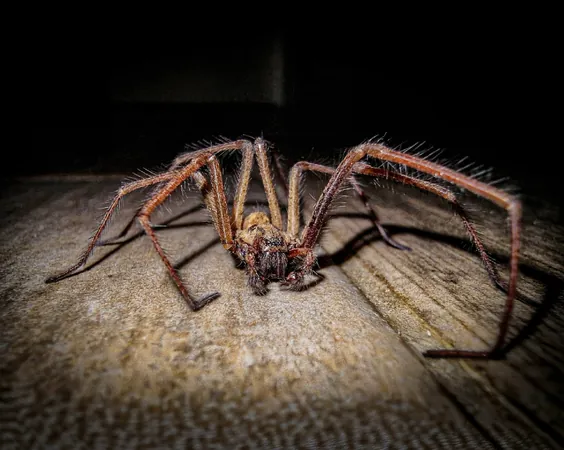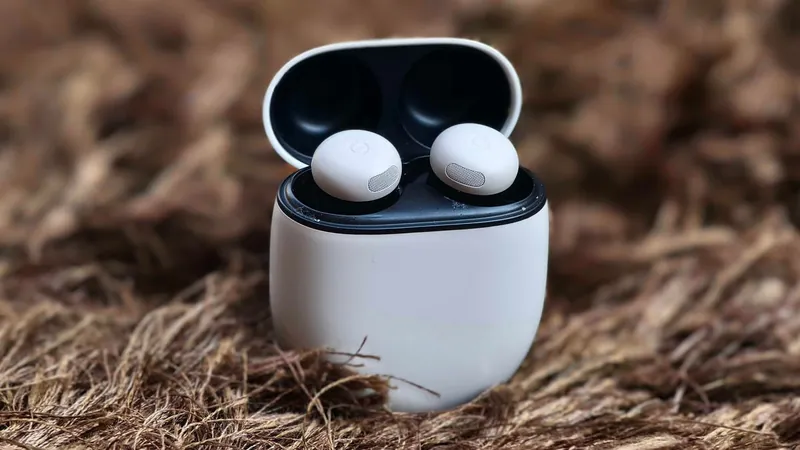
Unlocking the Secrets of Gut Microbes: A Natural Strategy to Combat Anxiety
2025-03-21
Author: Nur
Feeling anxious? You're not alone! Anxiety is a common reaction to stress that can prepare us for real or perceived threats. Yet, when anxiety becomes chronic, it can disrupt our hormone balance, leading to behavioral changes that characterize anxiety disorders. Research has now revealed that the key to managing anxiety may lie not just in our brains but also in our gut.
A groundbreaking study conducted by scientists from Duke-NUS Medical School and the National Neuroscience Institute in Singapore has uncovered a fascinating link between gut microbes, their byproducts, and brain activity associated with anxiety. The findings, published in EMBO Molecular Medicine, suggest that probiotics—beneficial bacteria—could become a promising new strategy for enhancing mental health.
Interestingly, those suffering from anxiety often report digestive issues, hinting at a deeper connection between gut health and mental well-being. Previous studies on mice have shown that the gut microbiome can influence brain chemistry and anxiety responses, yet the specific biological pathways remained a mystery—until now.
In this study, the researchers used germ-free (GF) mice, which are raised in a sterile environment without microbes. The team assessed the mice's anxiety levels through various behavioral tests, observing that GF mice exhibited significantly more anxious behaviors and were less adventurous than their microbe-exposed counterparts. The analysis revealed an increase in activity within the basolateral amygdala (BLA), a region of the brain that plays a pivotal role in processing fear and anxiety. This heightened activity was linked to a malfunction of specialized proteins called calcium-dependent SK2 channels, which normally help regulate neuronal firing.
"Our findings illustrate that the absence of gut microbes undermines the brain’s functional mechanisms, particularly in areas that govern fear and anxiety," stated Hyunsoo Shawn Je, an associate professor from Duke-NUS.
To explore potential remedies, the researchers introduced live microbes or supplemented the GF mice with indoles—chemical byproducts of certain gut bacteria that help the brain discern when to let go of fear. Remarkably, both treatments normalized BLA activation and decreased anxiety-like behaviors in the mice.
This promising research not only sheds light on the gut-brain axis, but it also paves the way for innovative, personalized therapies targeting anxiety disorders and other mental health conditions. "The implications of our research support the evolution toward precision medicine," added Sven Petterson, a professor at the National Neuroscience Institute. "It shows the intricate relationships between our indigenous microbes and the complexities of our emotional lives."
As the field of microbiome research evolves, it opens up exciting new possibilities for using probiotics as a treatment for managing anxiety, suggesting that the key to better mental health may indeed lie within our guts.
Stay tuned as this field continues to develop—could probiotics be the game-changing solution we’ve all been waiting for?






 Brasil (PT)
Brasil (PT)
 Canada (EN)
Canada (EN)
 Chile (ES)
Chile (ES)
 Česko (CS)
Česko (CS)
 대한민국 (KO)
대한민국 (KO)
 España (ES)
España (ES)
 France (FR)
France (FR)
 Hong Kong (EN)
Hong Kong (EN)
 Italia (IT)
Italia (IT)
 日本 (JA)
日本 (JA)
 Magyarország (HU)
Magyarország (HU)
 Norge (NO)
Norge (NO)
 Polska (PL)
Polska (PL)
 Schweiz (DE)
Schweiz (DE)
 Singapore (EN)
Singapore (EN)
 Sverige (SV)
Sverige (SV)
 Suomi (FI)
Suomi (FI)
 Türkiye (TR)
Türkiye (TR)
 الإمارات العربية المتحدة (AR)
الإمارات العربية المتحدة (AR)